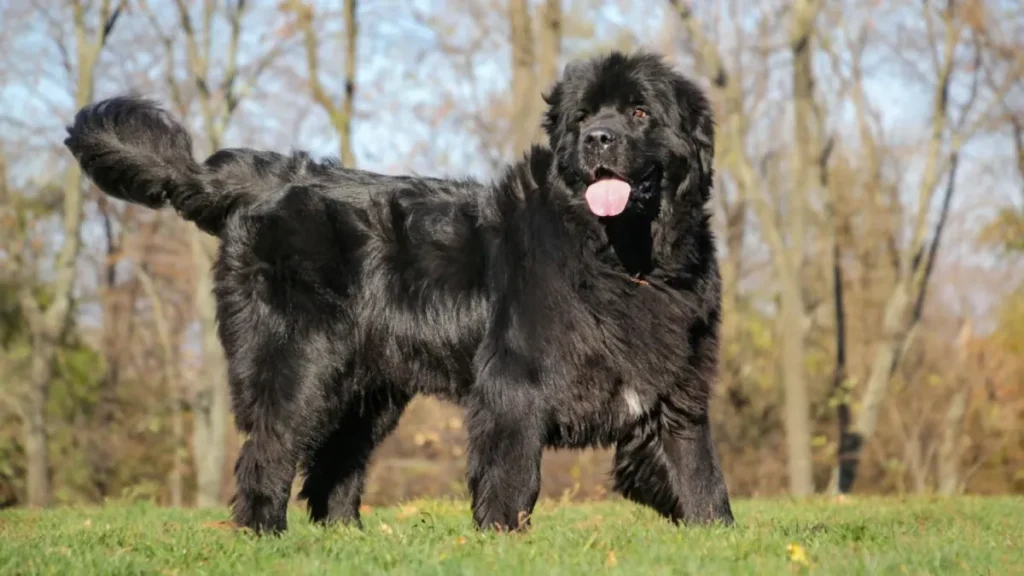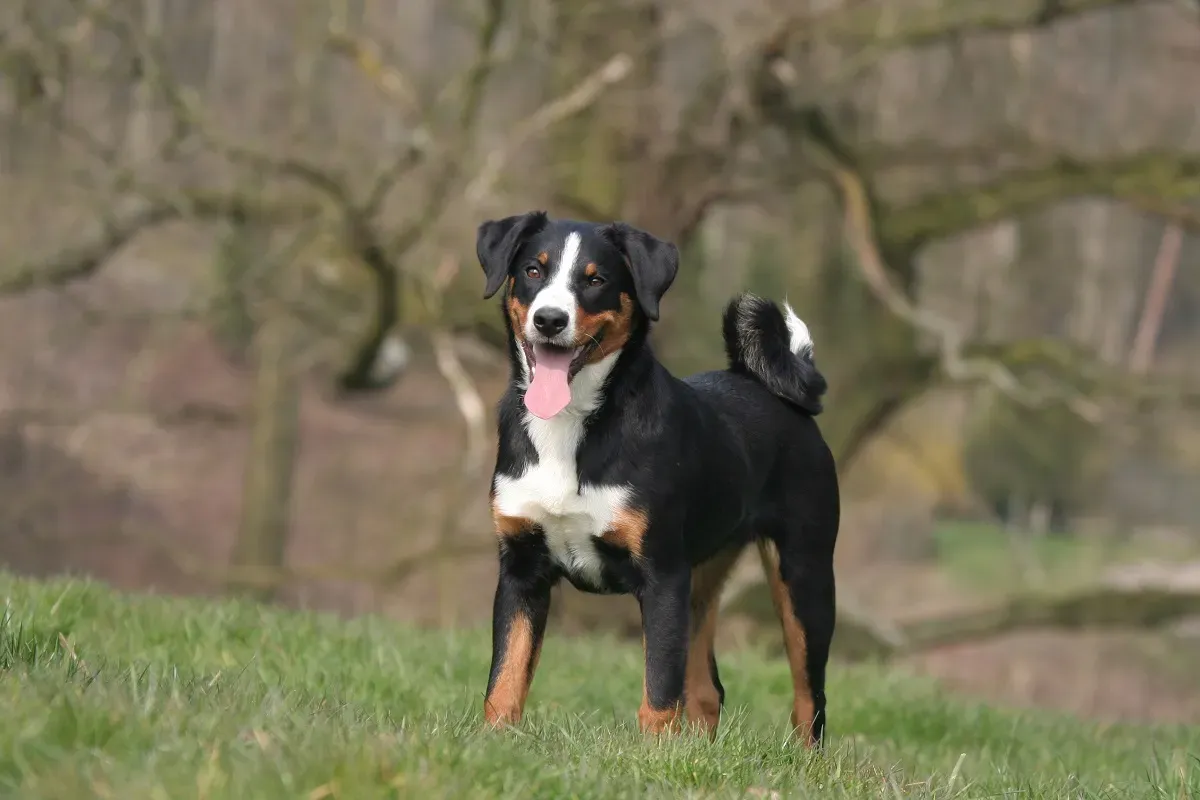
Newfoundland Dog
Heena
June 1, 2025

The Newfoundland dog is a majestic and affectionate breed known for its enormous size, sweet temperament, and remarkable swimming abilities. Originating from the cold waters of Newfoundland, Canada, this breed was historically used by fishermen to haul nets and rescue drowning victims. Today, Newfoundlands remain beloved family companions and working dogs in the UK, USA, and worldwide.
If you’re looking for a large, gentle, and loyal dog that doubles as a family guardian and water rescue expert, the Newfoundland is an exceptional choice.
Breed Overview
Newfoundlands come in several beautiful colors:
- Black: The most common and classic color
- Brown (also called Chocolate): Rich and warm shade
- Landseer: White with black markings (named after artist Sir Edwin Landseer)
- Gray (rare): Diluted black, also known as “blue” or “silver”
Their thick, water-resistant double coat protects them in cold weather and requires regular maintenance.
- Black: The most common and classic color
Temperament & Personality
Newfoundlands are famed for their:
- Gentle disposition: Especially good with children, earning the nickname “nanny dog”
- Loyalty: Form strong, protective bonds with their family
- Calm and patient: Very tolerant and even-tempered
- Intelligence: Eager to please and quick learners
- Sociability: Friendly with strangers but can be reserved
Their sweet nature makes them perfect for families looking for a calm, loving giant.
Communication & Intelligence
Newfoundlands communicate through:
- Body language: Relaxed posture, soft eyes, and gentle tail wagging
- Vocalisations: Deep barks and occasional whining to alert or seek attention
- Intelligence: Highly trainable and capable of learning complex commands
- Sensitivity: They respond well to gentle, positive training methods
Their calm and steady nature means they are not excessively vocal or reactive.
Health & Lifespan
As a large breed, Newfoundlands are prone to:
- Hip and elbow dysplasia
- Subvalvular aortic stenosis (heart condition)
- Gastric dilatation-volvulus (bloat)
- Cystinuria (a genetic kidney issue)
- Entropion and ectropion (eye conditions)
Their lifespan is relatively short, usually 8–10 years, emphasizing the need for good preventive veterinary care and regular checkups.
- Hip and elbow dysplasia
Grooming Needs
Newfoundlands require consistent grooming to maintain their thick coat:
- Brushing: At least 2–3 times a week to remove loose hair and prevent mats
- Bathing: As needed, generally every 1–2 months
- Ear cleaning: Weekly, to prevent infections from floppy ears
- Nail trimming: Every 3–4 weeks
- Dental care: Regular brushing or dental chews recommended
Shedding can be heavy, especially during seasonal coat changes.
Exercise Requirements
- Moderate daily exercise: 30–60 minutes of walks, swims, or playtime
- Swimming: Ideal activity as Newfoundlands are natural swimmers
- Mental stimulation: Training and puzzle toys keep them engaged
- Avoid over-exertion: Especially in hot weather or for young puppies
They enjoy moderate activity and benefit from time spent outdoors and in water.
Training & Socialisation
Newfoundlands are eager to please and respond well to:
- Gentle, consistent training: Positive reinforcement with treats and praise
- Early socialisation: Introducing puppies to different people, animals, and environments
- Basic obedience: Essential to manage their size and strength safely
- Advanced training: Useful for therapy work, water rescue, or obedience competitions
Their sensitive nature means harsh training methods should be avoided.
- Gentle, consistent training: Positive reinforcement with treats and praise
Nutrition & Diet
Proper nutrition supports their large size and health:
- High-quality large-breed dog food: Supports joint health and muscle maintenance
- Portion control: Prevents obesity, which can worsen joint problems
- Feeding schedule: Two meals per day recommended
- Fresh water: Always available
- Supplements: Consider glucosamine and omega-3 fatty acids for joint and coat health
Veterinary guidance helps tailor diet to individual needs.
- High-quality large-breed dog food: Supports joint health and muscle maintenance
What to Expect as an Owner
Owning a Newfoundland means:
- Welcoming a calm, loving giant who is great with children and family members
- Committing to regular grooming and preventive health care
- Providing moderate exercise and mental enrichment
- Managing a large dog that requires space and patience
- Enjoying a loyal, intelligent, and gentle companion for years
They are ideal for families, active singles, and anyone with room to accommodate their size.
Is the Newfoundland Right for You?
If you want a gentle, affectionate, and intelligent giant with a heart as big as their size, the Newfoundland dog is a fantastic choice. Best suited for owners in the UK or USA who have space, time, and dedication to care for a large breed with moderate exercise and grooming needs.
Final Thoughts
The Newfoundland dog is a beautiful blend of strength, loyalty, and kindness. Known for their lifesaving instincts and gentle demeanor, they remain one of the most beloved family dogs and working breeds worldwide.

